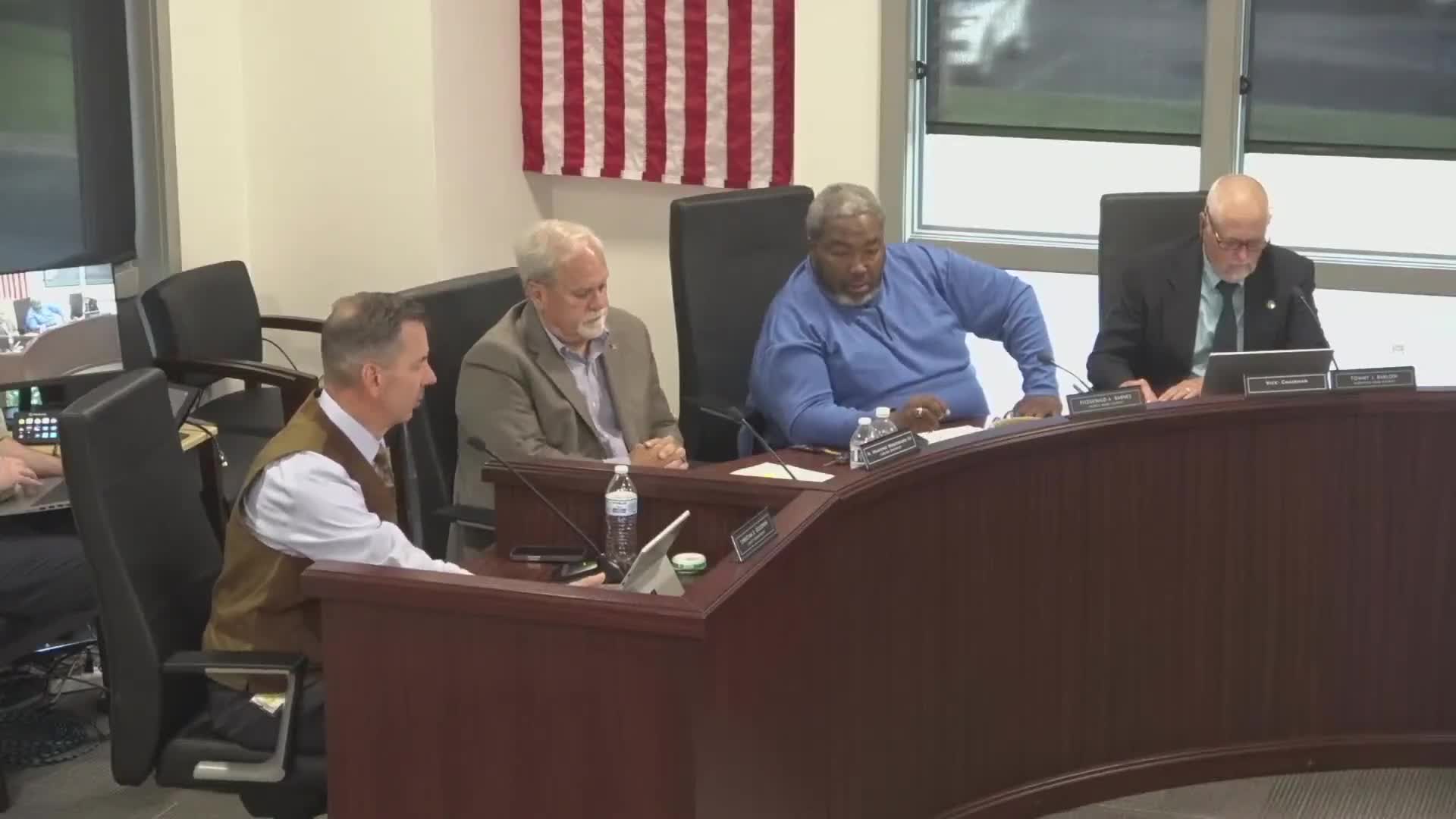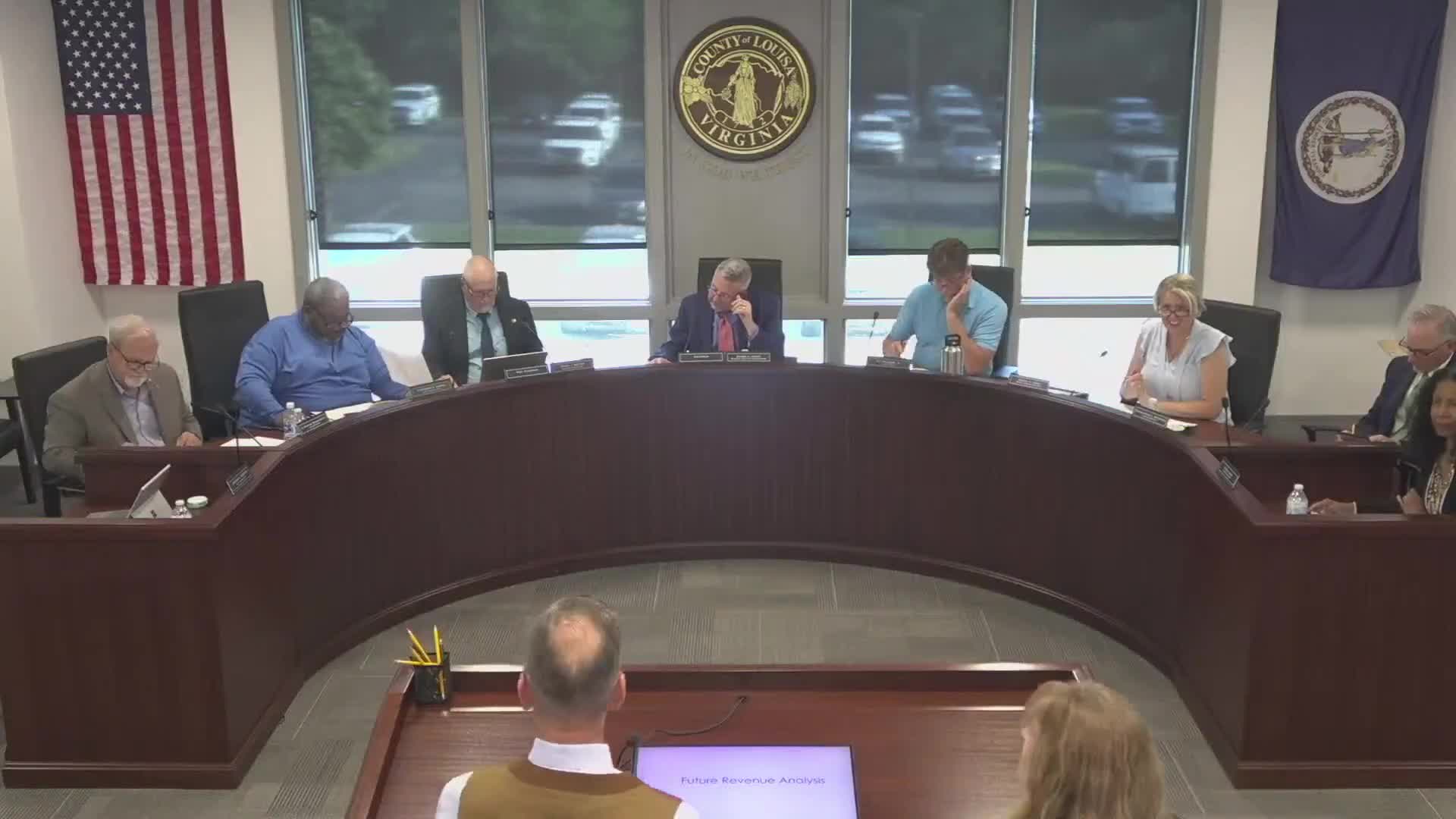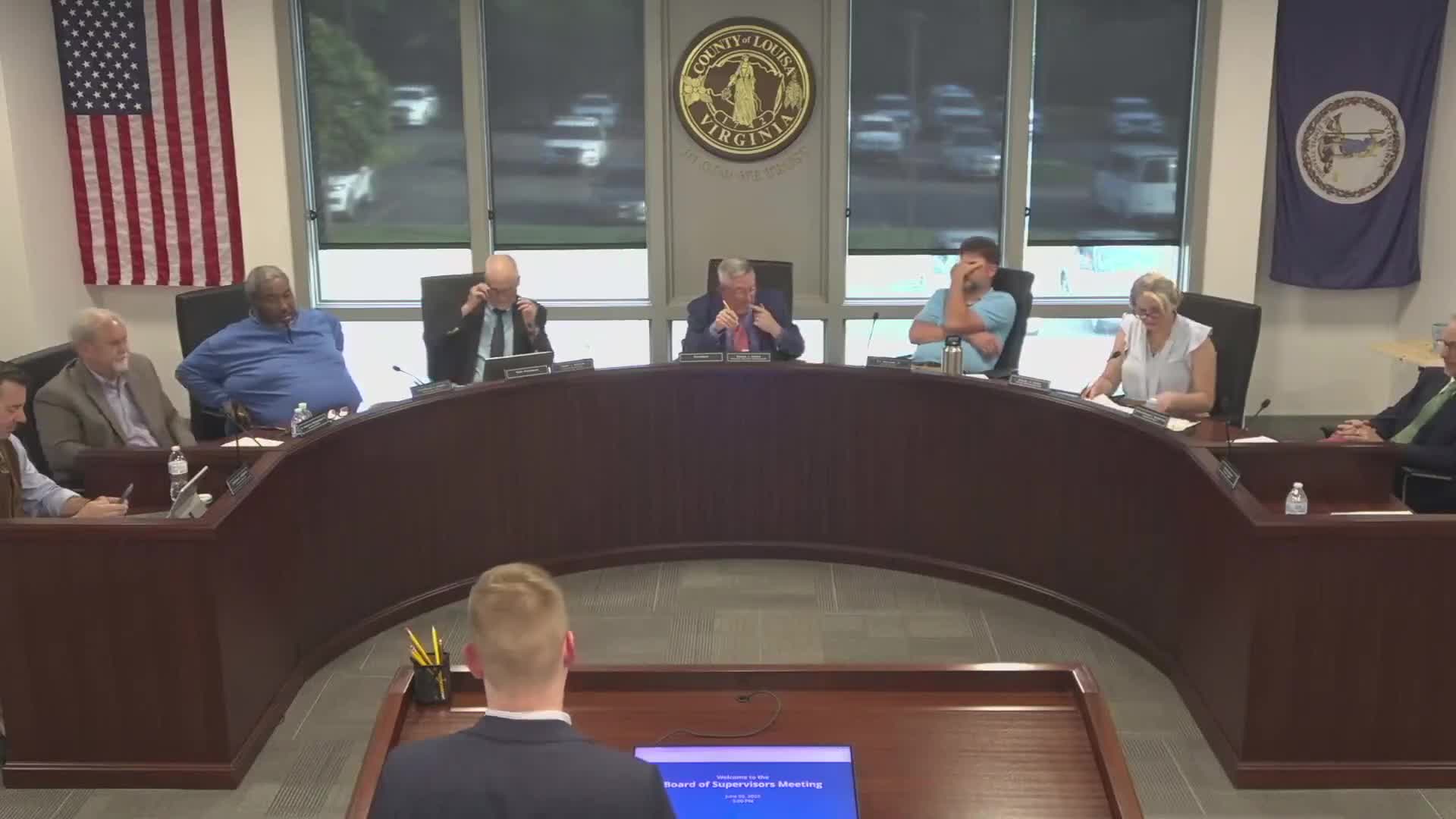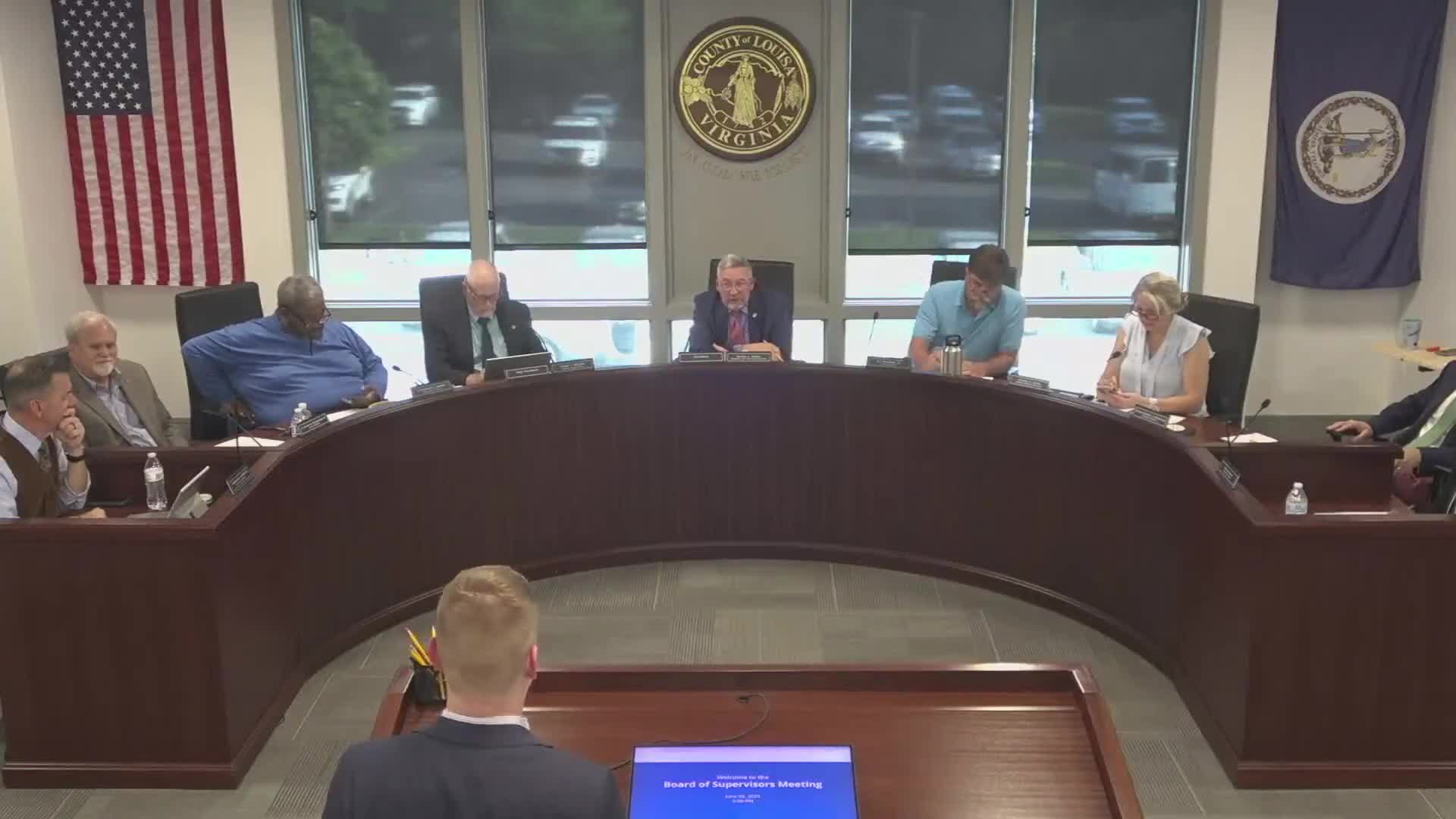Article not found
This article is no longer available. But don't worry—we've gathered other articles that discuss the same topic.

Board tables wide-ranging zoning amendments after debate over sign, subdivision and VDOT language

Louisa County revenue committee outlines allocations tied to projected data center and reactor revenues

Board unanimously waives Bowler’s Mill fishing permit fees, coordinates reciprocal permits with water authority

